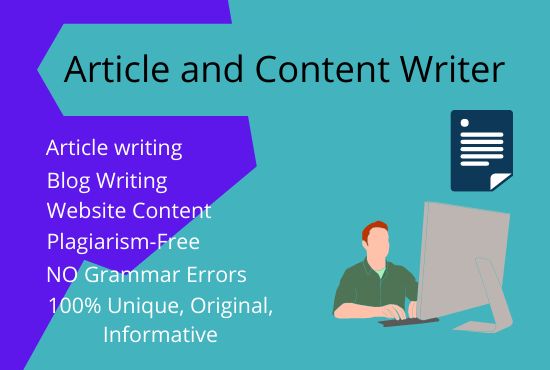Why 500 Word Blog Posts Do Not Work, My Take On This Interesting Phenomenon
In this article we are looking at the question of why 500 word blog posts do not work, and of why 1,000 to 2,000+ word blog posts are typically going to be the preferable length of content for ranking in the search engines. Consequently this blog post itself is going to be 500 words, and I am going to check back in about 8 to 12 months and update this article to see how it has performed in comparison to some of my other lengthier articles on this subject, maybe the results will surprise me, but somehow I doubt it. And so, we’ve only got 500 words, lets get started, why 1,000+ word articles are needed and why 500 word articles are now outdated. For more details and information on all things business and finance, read on and be sure to subscribe!
Why 500 Word Blog Posts Do Not Work, And Why 1500 Words Is The New SEO Minimum Speed Limit
 I have written and published something in the range of 5,000 blog posts over the last 10 years on probably a dozen different websites that either generated revenue, failed completely, that were sold, or that we just shut down because we were making less money than even the hosting fees cost on them. I can tell you from experience, that is is few and far between to find a web article that ranks with only 500 words. On authority websites, like if I am writing content for Gizmodo or Huffington post, then obviously this is a different story. But for starter blogs, and for home made affiliate websites (much like Inflation Hedging itself. I mean I do a darn good job compared to say 80% of bloggers on the internet, but we are by no means Huffington Post or Investopedia) you just are not going to have the domain power and affiliate authority to pull this off.
I have written and published something in the range of 5,000 blog posts over the last 10 years on probably a dozen different websites that either generated revenue, failed completely, that were sold, or that we just shut down because we were making less money than even the hosting fees cost on them. I can tell you from experience, that is is few and far between to find a web article that ranks with only 500 words. On authority websites, like if I am writing content for Gizmodo or Huffington post, then obviously this is a different story. But for starter blogs, and for home made affiliate websites (much like Inflation Hedging itself. I mean I do a darn good job compared to say 80% of bloggers on the internet, but we are by no means Huffington Post or Investopedia) you just are not going to have the domain power and affiliate authority to pull this off.
No with typical run of the mill websites, and even on websites that are say 5 or 7 or 10 years old, where you have a decent amount of domain age and authority to be able to pull off decent SEO rankings, you are going to need to increase your value proposition over a Huff Post 500 word article, because that may very well be what you are competing against, or something close to it, with every single blog post that you publish. I recommend content lengths of 1500 to 2000 words, and I recommend the following article types:
| Related Posts |
|---|
- Long Form List Content – Long form list content, such as top 10, top 20 and top 100 type blog posts work very well, and I highly recommend writing these whenever possible.
- Answer Targets – I have seen blogs that solely do this type of content, and it is something that I am moving towards in a major way, that have done very well with this type of business model. 900 blog posts on a website like this could easily get you to 250,000 pageviews per month.
- Question Targets – Same thing as answer targets but a bit more specific.
- Low Competition and Low Volume Keywords – This one is a no brainer, although the longer I stay in the SEO game the more I find that things like the Google Keyword planner and other keyword tools are not exactly spot on. The truth is there is so much search traffic and such vast amounts of query data to be analyzed that only Google itself knows the exact numbers for these, stick with long tail and long form content regardless of volume and you’ll do just fine.
Why 2,000 to 3,000 Word+ Articles Rank the Best, And Why Content Length Has a Significant Advantage in the Search Engines
Keeping this short, because we are way past our 500 word article goal here, There have been studies conducted that show that of the top ten posts ranking on Google for some major keywords, nearly all of them have about 3,000 words in content length, even with other factors like their link profile and the like being different. The jury is in, content is king and the more of it you have, typically the better your value proposition, and the better your rankings.
How To Make Shorter Content Rank in Google, It’s All About Domain Trust And Authority
So this blog post is about 700 words all told without the disclaimer. Let’s see how it does, my bet is it is too short to gain any traction and it gets lost in the ether of the SERPs, but maybe the good old Inflation Hedging.com domain name will surprise me. I’ll report back and modify this post within one year, and I’ll see ya then. Till next time, you heard it first at Inflation Hedging.com.
Cheers!
*Inflation Hedging.com
Sources:
https://www.bankrate.com/banking/cds/cd-rates/
https://money.cnn.com/data/markets/
Disclaimer: The opinions and documentation contained within this article and on this blog are the sole property of inflationhedging.com and are not to be copyrighted or reproduced in any manner, else legal action within the rights of the United States legal code could be use to obtain recompense. All articles and blog posts are the sole opinions of the writers of the blog, and are not necessarily in line with what exactly will work for you, you should consult a CPA, Tax Professional, or Financial Professional to determine what exact financial needs are in line with your interests. Also, from time to time, certain links on this website will be used to generate affiliate commissions, in order to support the health and growth of our website, health and business.










Leave A Comment